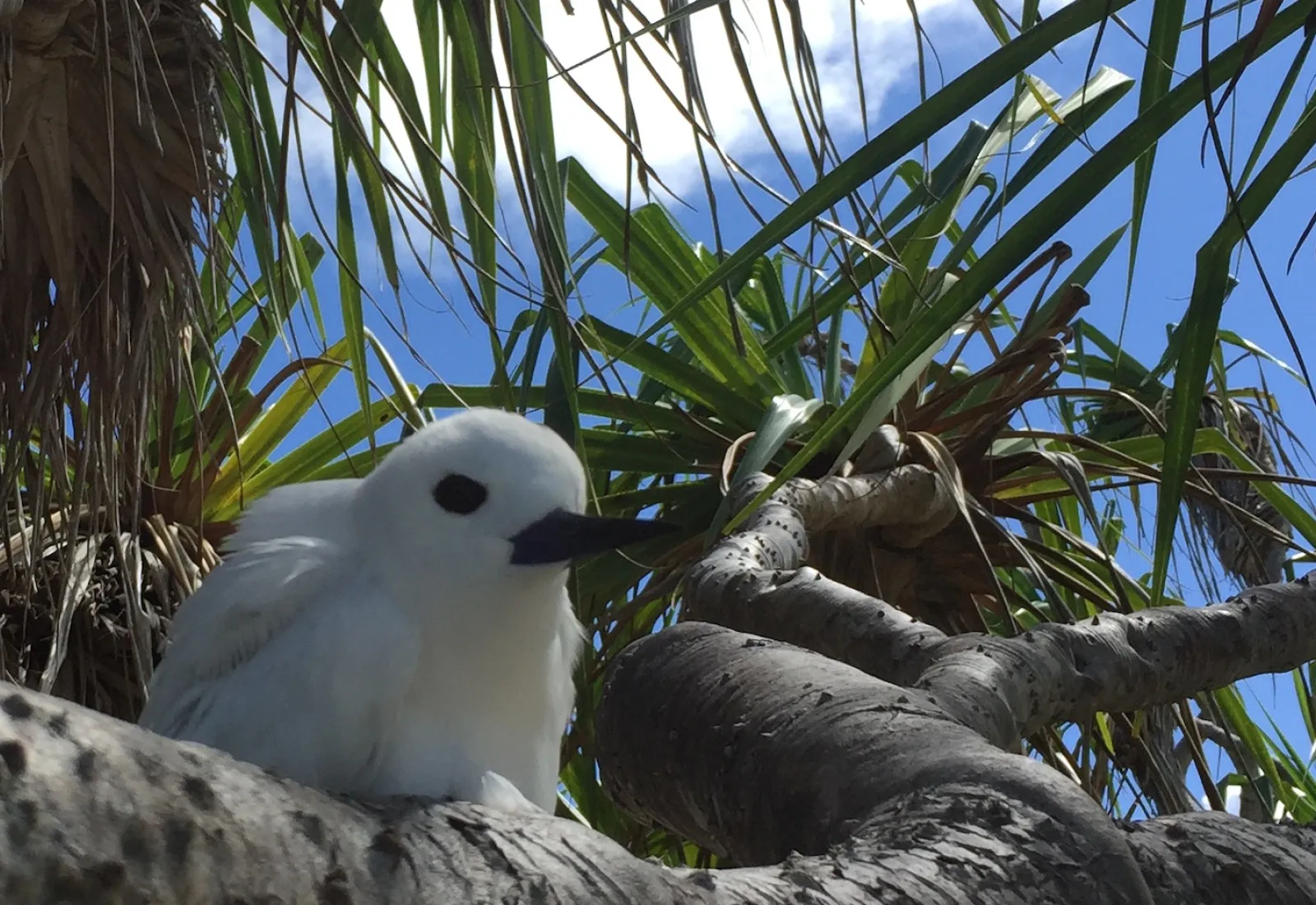Gygis alba is also known as the “White Tern”, “Fairy Tern”, or “‘Itata'e” in Tahitian. This small, white seabird is found throughout the tropical Pacific, Indian and South Atlantic Oceans.
The 'itata'e is graceful and enchanting, and seems to have descended straight from the heavens. In Polynesia, similar to all native bird species, the 'itata'e is a messenger or incarnation of a god. For the 'itata'e, it is the god Tane, who is known as the god of all beautiful things and allowed light to enter the creation.


‘Itata'e travel up to 120 miles offshore from their roost to feed. Their diet mainly consists of small fish near the surface that they catch by dipping or shallow dives. They usually prey on fish driven to the surface by large predators, such as flying fish mārara in tahititian and juvenile goatfish 'ōuma, They are often seen fishing alone or in small groups of mixed flocks.
In Tahiti, fishermen often rely on itata’e when looking for mahi mahi since both the bird and the dolphin fish chase after the same diet of flying fish.

About 36 days after, a small tuft of brown or spotted gray down emerges on a pair of disproportioned and powerful claws, allowing it to cling to the branch in any weather conditions. The parents take turns caring for the egg and the chick. After fledging, it takes two and a half months for the juvenile to be autonomous in feeding. He/she reaches sexual maturity at least in the third year.

Motu Reiono is the first motu to have benefited from the removal of invasive rats, which posed a huge threat to nesting seabirds, turtles, crabs, and other native species. Now free from predation, white terns can reproduce in the primary forest without losing their eggs and young to invasive rats.
Find out more about the success of the rat eradication program on Tetiaroa
The 'itata'e are present on most motus and seem to adapt well to human presence. The Brando hotel guests can find them in the garden of their villa on a Pandanus tree branch.
An ‘itata’e couple are regularly seen together on a Pandanus branch along the path between the Villa 201 and Villa 202.

Adult 'itata'e have black eyes, bill and legs. Their bill is electric blue at the base. Their plumage is immaculate white and silky. Their wings are sharp and reach a wingspan of 60 to 70 cm.
The 'itata'e surely is a beautiful bird for all to see.


